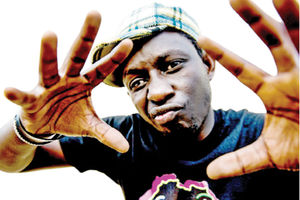
Seventy years ago, in 1954, radio was born in Uganda when the British colonial government set up Uganda Broadcasting Service (UBS). The primary goal of the radio was to support the imperial agenda of the British and silence the pro-independence movement that was taking over the Luganda newspapers for their political mobilisation. The British needed to counter that with their own outlet and UBS was born. The radio service mainly aired re-broadcasts of British Broadcasting Corporation (BBC) news, aimed at serving the government.
When it was renamed Radio Uganda soon after independence in 1962, the radio continued serving as a government mouthpiece, just like Uganda Television (UTV) that would soon be launched one year later, in 1963. Both Radio Uganda and UTV were directly under the Ministry of Information, which employed broadcasters as civil servants. Because of this, Radio Uganda (and UTV) was never an independent channel of information but rather remained a government mouthpiece.
“The concept of public service broadcasting proved difficult to work in Uganda because broadcasters were not protected by law and they were not independent of official interference and, in some cases, coercion.
“From the 1960s through the 1970s up to the early 1980s, the two branches of the national broadcaster, UTV and Radio Uganda, were quintessential symbols of state power, to the extent that none of Uganda’s numerous coups took hold before the plotters secured control, especially of Radio Uganda.
“The national broadcaster was widely viewed as the ultimate voice for state authority. After assuming power in January 1986, the NRM government’s eventual embrace of the IMF and World Bank’s liberalisation policies extended to the broadcasting sector in the early 1990s,” reads in part a research paper by the Open Society Institute Network.
The birth of FM radio
On December 18, 1993, almost 40 years after the birth of radio in Uganda, Radio Sanyu came on air. Radio would never be the same again. Prior to that day, radio was largely for purposes of relaying official news that focused uncritically on state propaganda and pronouncements of government leaders and grim death announcements. Only a tiny percentage of the airtime was dedicated to music if at all, which led to the alienation of a section of the youth. But with the birth of FM radio, a new day had come.
A mere 13 days after the birth of Radio Sanyu, Capital Radio also came on the air on December 31. These two radio stations were largely music stations, with minimal news and announcements. Now it was a cool thing to listen to radio and young people were fully brought into the fold.
Cool youngsters such as Alex Ndawula and Allan The Cantankerous entertained listeners with interesting facts and humour on top of the great music. Presenters gained rockstar fame almost overnight, raking in massive followings that made radio even more popular across the country.
The glorious FM days
Thus started the glorious days of FM radio. The next 10 years were radio heaven in Uganda with shows such as Fancy Jazz Connection with Allan the Cantankerous on Radio Sanyu, The Morning Crew with Alex Ndawula and Christine Mawadri on Capital, KT20 with Peter Ssematimba on Capital, Kaliisoliiso on CBS, Capital Gang on Capital Radio and so many more.
It is, therefore, highly conceivable that the dramatic growth of the sector may have those glorious beginnings behind us. For example, by December 1996, barely three years after the first FM station, Uganda already had 14 radio stations and by March 2007 were a total of 158 FM licenses in Uganda.
Crowded airwaves?
Today, Uganda has more than 320 local FM stations, arguably the highest number in Africa. Joseph Beyanga says this is part of the problem because our economy is not strong enough to support more than 300 plus radio stations.
“If I was a regulator, maybe I would have done it differently. I would have capped at a much smaller number,” he says.

Internet and smartphones
Other than the crowding, the other big threat is the fast spread of affordable internet and smartphones in areas where smartphones are concentrated, aka urban centres, radio listenership is minimised. Slowly, this is spreading to the countryside and ridding radio of audiences. People spend all their time on social media listening to podcasts or X spaces on smartphones and no time for radio.
Mawadri, a famous radio personality of the ‘90s speaks for many when she says whenever she is given lifts in other people’s cars, more often than not, people are playing music off flash drives, YouTube or listening podcasts off their phones on the car stereo rather than listening to radio.
“Radio has become very predictable. There is nothing new going on there. It has become flat. The reason why radio is not exciting anymore is because it has been in a creative lull, in a sleep. That is why people turn to the internet,” Mawadri says.
Moses Serugo, a veteran arts and culture journalist and critic, says radio as it is today has nothing to offer, adding that it has lost its novelty.
“For those of us who are from the pre-FM era, the advent of FM radio was a novelty. I can attest to my introduction to music genres such as jazz being because of FM radio. There were people such as Allan the Cantankerous who had a show on Radio Sanyu called the Fancy Jazz Connection. The genre felt weird, but he would bait his listeners using humour. Allan was quite a humorous guy but then to listen to the next joke, you had to sit through five songs. So, yeah, so for me, that is the novelty I miss about radio today, because it has too many loud adverts,” Serugo says.
According to Serugo, radio has degraded itself in a way that you no longer have the radio jingle where you just sing the advert but rather endure shouting ads. He believes that this unfriendliness of sounds is the reason many are gravitating to podcasts.
This lack of cutting-edge creativity has weakened radio on top of the quick spread of the internet that has captured the imagination of the youth in a manner that radio is simply incapable of, has flattened the growth of radio’s influence, especially among urban youth.
Lack of radio training
Mawadri also attributes the lack of depth to the absence of a radio skilling institutions in the country. She believes disruptive radio would wake up the industry but that can only come with training.
“I am passionate about disruption. I am passionate about creativity, but there is no institute for me or any said place where I can collect creative people to come and say, ‘guys, let us ignite that fire in you that creative passion that you have’. Here, we would be able to see who is good as a radio presenter, who is fit for a producer, or who is fit for a content creator. So I guess that is a big problem,” Mawadri says.
Is there hope?
Joseph Beyanga, the outgoing head of radio at NMG Uganda, says radio’s future has never been threatened by other mediums. He says radio is still here and nothing can change that, adding that the other mediums are actually complimentary to radio.
“The future of radio is not under any threat at all. If you look up all the surveys that have been done by different people, more than 89 percent of Ugandans use radio. There is no other medium that is closer to that,” says Beyanga.
He adds that the fact that some urban dwellers are not listening to radio as much as they used to is not a problem because that will always remain the minority, at least for the foreseeable future.
“The fact that radio no longer has big national stars is also not an indicator that things are bad. Every village has its own superstar because we have 323 radios across the country. Radio is local,” he says.
Mawadri also adds that there is no need to panic as radio is not about to die.
“For the time being, radio is relevant, especially for the masses. It is also very relevant if you look at the urban setting where you are sitting in a car for close to three hours on the commute because of traffic jam,” says Mawadri.
She is quick to add that radio will only die if people are still doing what they are doing, adding that a disruption would bring back radio from the brink.
“Disruption is merely understanding the threat and looking for the opportunity. That is what it is. For instance, when I get a chance to be driven or chauffeured, I find that the person whose car I am in is listening to their own music on their phone, or Spotify, or watching something on YouTube for those who have those little TVs in their cars.
Legislation
Mawadri mentions that regulators, promoters and station owners must be intentional about making sure that places where radio channels are limited, such as in cars where stereos stop at FM90 should be opened up, for car owners to be able to have car stereos that go beyond 90. If it stays at 90, you only have two options to listen to. You do not have the whole plethora to make a decision or a judgment.
TV more endangered
Mawadri says that instead of radio, TV is more endangered by the internet and smart gadgets, adding that while it is easy to listen to radio on the go or while servicing your car or cutting the grass, it is not possible for TV.
“While we are even talking about that, the new era is a bigger threat to TV, which is near extinction. In fact, TV is worse because now with smart TVs, why would I be watching TV when I can get on X and get news, the clip and the caption?” Mawadri says.
RX radio fate
Less than a week ago, RX Radio, the hip online station that was launched four years ago by legendary radio presenter James Onen, aka, Fat Boy, retreated from its Ntinda base and moved into James’ home due to deteriorating business, according to impeccable sources. RX Radio (initially Reckless Radio) was Onen’s classy clapback after being unfairly fired by Sanyu FM where he had worked for more than 20 years.
When the online radio was launched in August of 2020, it was Uganda’s first online radio. The signal was markedly better than FM radio and this, coupled with the great music catalogue, created a buzz in the city. It felt like RX Radio was pointing all the other radios in the right direction. People were spending more and more time online on their smartphones and going online was only logical. It was warmly welcomed by his fans who were offended by how Sanyu FM had treated him. Jumping on board was not just because of the stellar quality. It now appears like the support was not strong enough to keep the big bucks coming in, and as of Wednesday 8pm, the station had only one presenter come on air.




